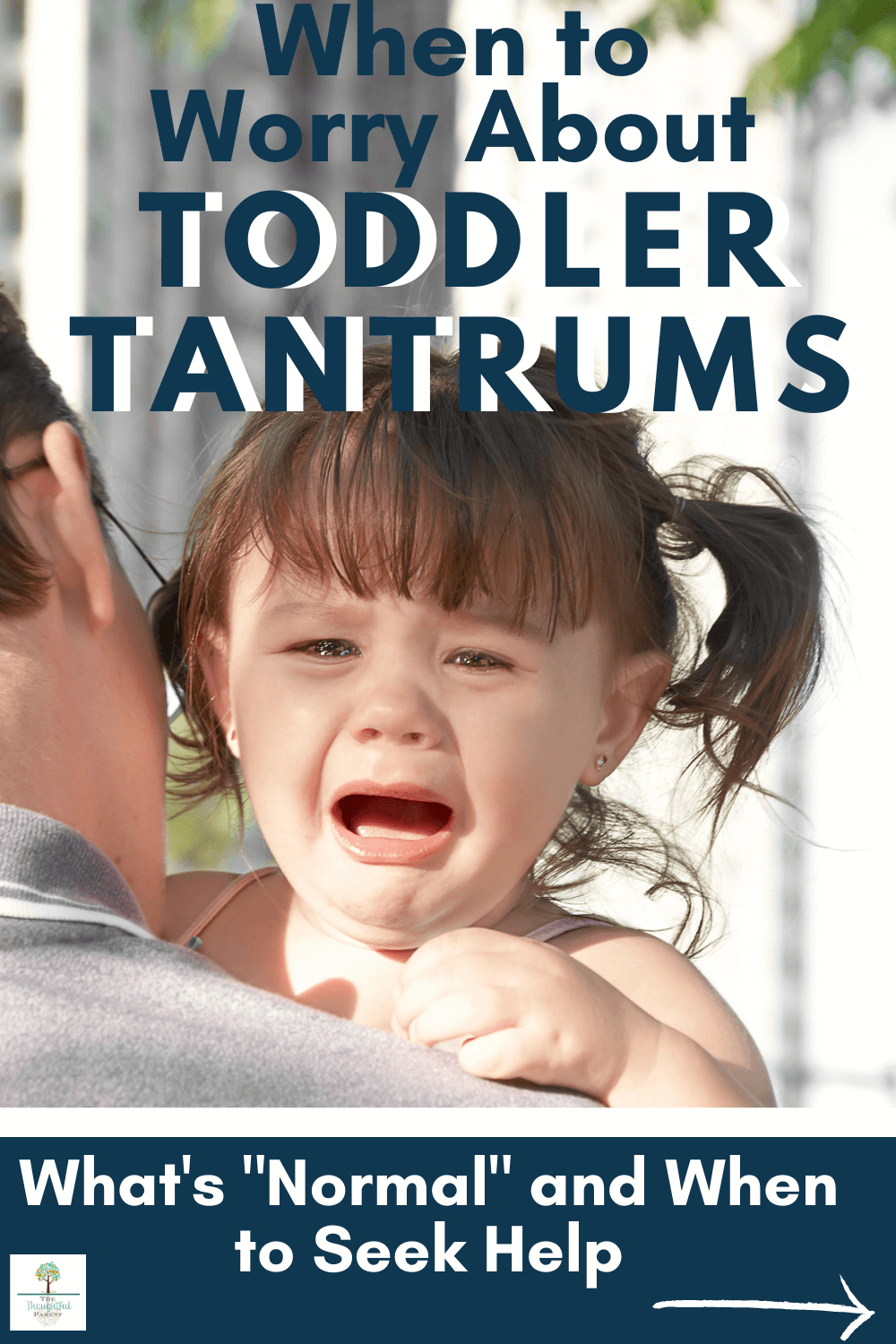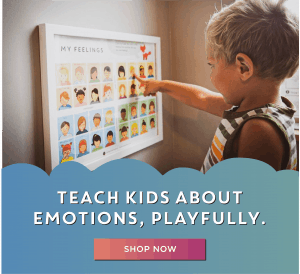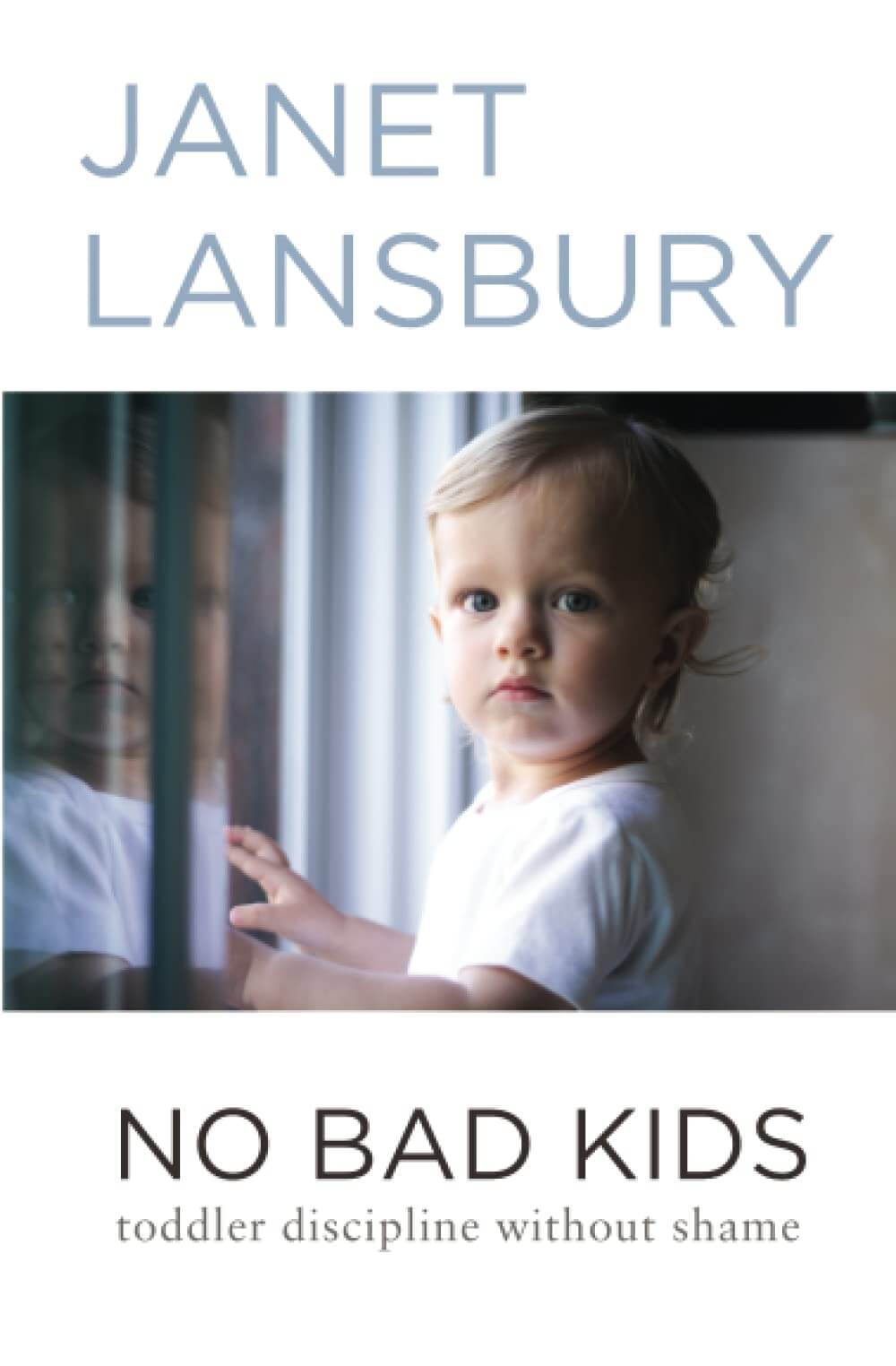Note: I’m thrilled to feature guest author Dr. Victoria Nolasco to discuss common parent questions about toddler tantrums.
When should you worry about your toddler’s tantrums? As a developmental pediatrician, parents often ask me whether their child’s tantrums are “normal”. We know that tantrums are part of toddler territory, but when are toddler tantrums a real concern?
Related reading: Toddler Development: A Research-Based Guide for Parents
If your child is at the tantrum stage, know that you are not alone. Researchers have found that 87% of toddlers 1 ½ to 2 years old, and 91% of kids 2 ½-3 years old have tantrums. But when our kids are in the middle of a screaming episode, sometimes we can’t help but worry.
Knowing when to worry about your child’s tantrums is important for two reasons. First, if there is a good reason to be concerned, it’s better to seek help earlier rather than later. Second, I would like to remove any unnecessary concerns, so that you can concentrate on the things that matter. As toddler moms, we already have enough worries as it is.
Here are the signs that you may need to seek help for toddler tantrums. If you see any of these, you should bring it up with your pediatrician.

When to Worry About Toddler Tantrums
Prolonged or frequent tantrums
The Early Intervention Group of Northwestern University is conducting an excellent and very interesting study about this, called the “When to Worry” Study. They conducted specific and objective assessments about toddler tantrums, using standardized tests. The study authors recommend watching out for tantrums that are “intense, prolonged, or unpredictable”.
Toddlers usually have short tantrums as frequently as once a day, with most of them lasting less than five minutes. There may be longer tantrums once in a while, but these shouldn’t happen too often. While there is no hard and fast rule, when a child’s usual tantrum lasts longer than 25 minutes, it may be a cause for concern.
Related reading: One Research-Backed Way to Diminish Toddler Tantrums
After the toddler years, kids typically shouldn’t be having daily tantrums anymore. One study in children who are 3-6 years old found that those who have more than 20 tantrums a month were more likely to have psychological problems. Those who have difficulty recovering from a tantrum are also at increased risk.
This post contains affiliate links. Purchasing through these links provides me with a small commission (at no added cost to you).

Tantrums that are frequently associated with aggression
Most toddler tantrums are not really a sign of aggression. They are more the result of frustration. A child becomes frustrated because he’s having difficulty accomplishing something. Or he wants to explore somewhere that’s off-limits. (This happens with my toddler A LOT. That’s because toddlers’ brains are wired to explore!)
In fact, most of what we call tantrums are better called “meltdowns”. In a meltdown, the child is crying or screaming because he is hungry, sleepy, or overstimulated. In these instances, it is often easier to spot the need underlying the tantrum and calming toddler tantrums involves meeting this need.
Toddlers are still learning how to control their emotions. While they are learning, they may hit or kick once in a while, out of frustration. When to worry about toddler tantrums and aggression, however, is when kids consistently hurt themselves or others during their tantrums. If the aggression is quite frequent, particularly if this aggressiveness does not seem to come from frustration, it may be a warning sign.
Toddler tantrums that are associated with speech delay
Language skills are extremely important in regulating emotions. All toddlers, whether or not they have a speech delay, are still developing their language skills. This makes toddlers more prone to tantrums. That may be the only way they know of expressing their feelings. They may not yet have the vocabulary to say that they are hungry, or tired, or overwhelmed.
Kids with speech delay have an even harder time with emotional regulation. A recent study, also by Northwestern University, showed that two-year-olds who can say less than 50 words are twice as likely to have frequent and severe tantrums.
That’s why we need to watch out for tantrums that are associated with speech delay. While your pediatrician is the best person to ask about this, here are some guidelines from the American Academy of Pediatrics.
- Your child should be using at least 6 words by the time that he is 18 months old. He should be using these words to communicate, and not just reciting them by rote.
- Your child should be following simple commands by the time she is 2 years old. She should also be having meaningful two-word sentences by then.
If your child has a speech delay, she needs help as soon as possible. The toddler years are a critical period for language development. We don’t want to miss out on the chance to intervene early if there is a problem.

Toddler tantrums that are associated with problems in social skills
As parents, we often worry about when our kids should be learning things like the alphabet and numbers. However, these are not the most important skills to learn during the toddler years. At this age, it is even more important that they learn age-appropriate social skills.
These are early signs of possible problems with social skills.
- By 12 months at the latest, if you point out something interesting to your child, she should be able to follow and look at where you point.
- By the time your child is 15 months old, he should be pointing at things that he wants. When he is 18 months, he should also be pointing at things not only because he wants them, but simply because they interest him.
- Your child should be imitating what the people around her do or say by the time she is 2 years old, and playing pretend games by the time she is 3.
Just like with language, your child will need help if there are problems with social skills. Toddlers learn to regulate their emotions through a process called co-regulation. This means that they need a warm and responsive interaction with us to be able to deal with these big feelings that trigger tantrums.
That’s why developing social skills is a very important part of how a child learns to handle tantrums. To learn more, here’s a comprehensive guide on social and emotional development.

Consistent tantrums when you take away a child’s screen time
It is normal to have an occasional tantrum over screen time. However, if it is extremely difficult for you to set limits on screen time, this may be a warning sign that your child is starting to get addicted. When to worry about toddler tantrums related to screen time is when a child consistently has tantrums each time a gadget is taken away. Another is if the child shows no interest at all in screen-free activities.
We have seen internet addiction all too often in older children and even in adults. Unfortunately, we are starting to see this more often in toddlers too. Screen time battles are fast becoming one of the most common causes of toddler tantrums. Reading books with real-life children who are struggling with this issue may help—like Emmer’s Screen Time.
When these battles are happening frequently, it may be time for a stricter screen time policy. Young children lack the self-regulation skills needed to manage screen time so parents must guide and model technology rules.
Related reading: Research Meets Real Life: Proven Ways to Manage Toddler Screen Time

What to do When Toddler Tantrums are Problematic
Having one or more of these signs does not automatically mean that there is a problem or that your child will be diagnosed with a disorder. However, we have found that even if there is no disorder, if your child’s tantrums are becoming problematic, intervention can also be helpful. Understanding when to worry about toddler tantrums is the first step in learning more about your child’s behavior.
So if you see any of these signs, it would be best to tell your doctor about it during one of your well-child visits. You shouldn’t feel like you need to cope with all of this alone.
Know that your child’s tantrum does not make you a bad parent. Let’s stop judging parents when we see their child having a tantrum in public. Let’s also stop labeling kids as “bad” or “naughty” if they have tantrums.
If we see a child falling while learning to walk, do we blame either the child or the parent? Of course not! The same thing goes for tantrums. Even something like toddler growth spurts can increase crankiness and tantrums! Tantrums are like the “falls” while your child is learning to regulate her emotions.
Take heart. Just as your child eventually learned to walk, this tantrum stage will end, too. Your child will emerge as a stronger person for having had this practice in emotional regulation.
Read this article for how to handle toddler tantrums, based on what research actually says.
Need more help with tantrums? Dr. Victoria can help!
Have a simple five-step plan to follow the next time your child has a tantrum. Get the free guide on Handling Toddler Tantrums.
About the author:
Dr. Victoria Nolasco is a developmental and behavioral pediatrician, clinical associate professor of pediatrics, and a certified positive discipline coach. She is also a mom to a two-year-old. Her blog, effectivemommy.com, is dedicated to happy and confident parenting for toddler moms.
Related Resources






holly
Excellent article! These research papers are really interesting.